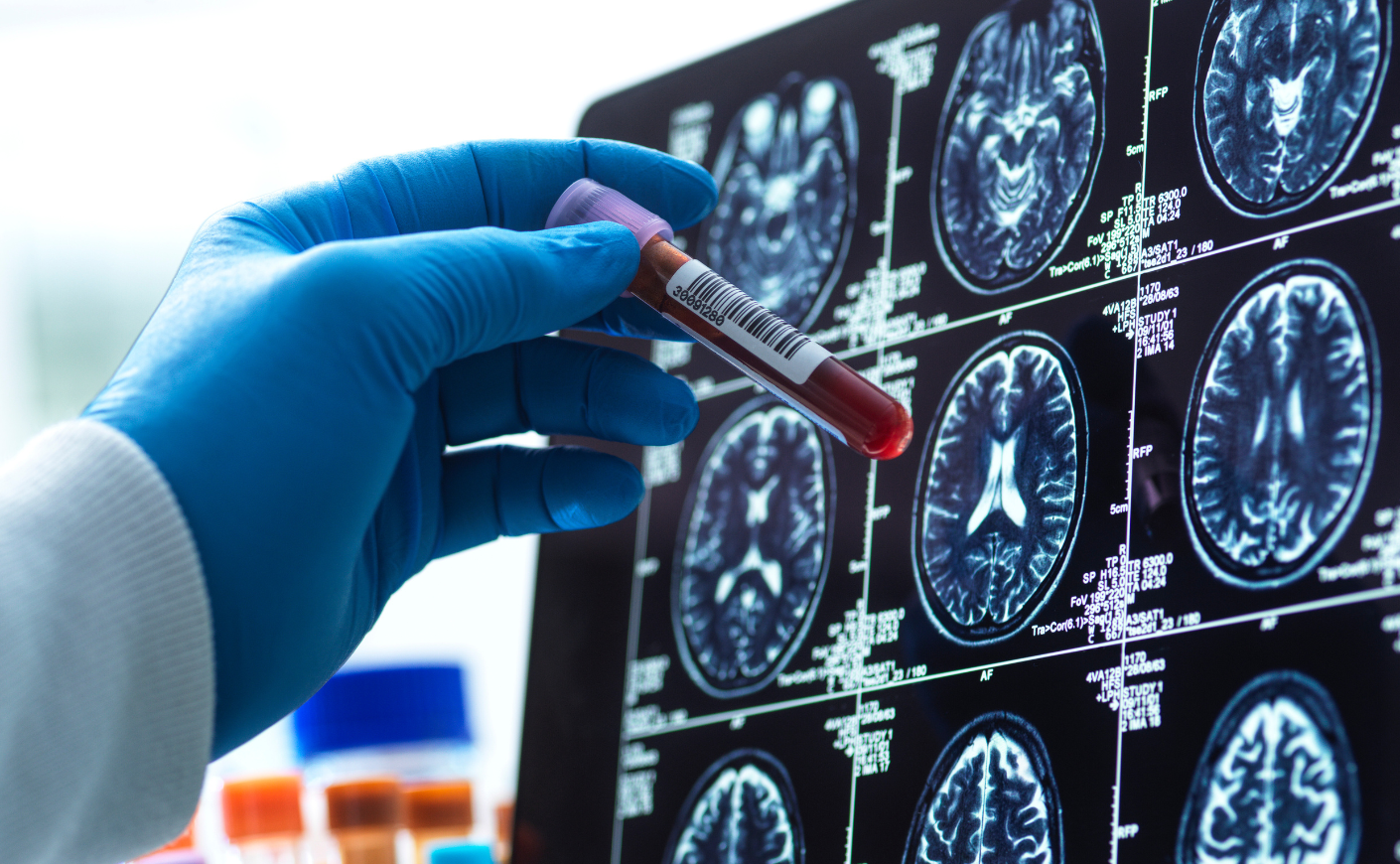A new blood test that could help doctors identify whether a patient has Alzheimer’s disease was cleared by the FDA last week.
The diagnostic tool, the Elecsys pTau 181 plasma test, is developed by Roche in partnership with Eli Lilly. It's designed to rule out Alzheimer’s disease in patients 55 and older who show signs of cognitive decline. In a study of 312 participants, the test was able to rule out Alzheimer’s in 97.9 percent of cases, according to Roche.
Roche’s test, which measures the blood level of pTau181, a protein that builds up in the brain tissue of Alzheimer’s patients, is the second approved by the FDA. The first was the Lumipulse, made by Japanese manufacturer Fujirebio Diagnostics, which analyzes levels of tau and beta-amyloid, another hallmark of the neurodegenerative disease.
However, the Elecsys test is the first one given the green light for use in primary-care settings, and many experts view it as an important step toward expanding access to Alzheimer’s diagnostic tools. Nearly 7 million Americans have Alzheimer’s, which has historically been challenging to diagnose. Until recently, physicians have had to rely on brain scans and invasive tests that measure the cerebrospinal fluid, which is collected through a spinal tap.
"Not everybody is interested in getting a lumbar puncture, and PET imaging is not wildly accessible," says Rebecca Edelmayer, Ph.D., the vice president of scientific engagement at the Alzheimer’s Association. "We need tools that are going to be cost effective, not invasive, and scalable across the globe to help aid in early detection and diagnosis. And that's where we've seen remarkable advancements in the past 10 years or so in blood biomarker testing."
We spoke to Dr. Edelmayer about how reliable these tests are, who should consider getting one, where the tech's headed, and much more.
How reliable are these Alzheimer's blood tests?
Dr. Edelmayer: Many of them are quite reliable, but not all of these tests are created equally in terms of their accuracy. Some of the tests can be used to aid in diagnosis, whereas others — which may be less predictable — won’t necessarily be able to give you a firm diagnosis, but can at least be used to rule Alzheimer’s out. Although a patient will still likely have to have some brain imaging or an analysis of the cerebral spinal fluid, which is really the gold standard today, to aid in the diagnosis process.
Some of the tests also have an increased risk of providing false positives or false negatives. So it’s really important that people are having conversations with their clinicians about whether blood testing is appropriate for them and for clinicians to think about which type of test they want to be using in their clinic. We’ve put together a guide for health professionals who are interested in using these tests.
How widely are they being used right now?
Over the past year or so, we’ve definitely seen an uptick in clinicians ordering some of these blood tests for their patients. It’s starting to be incorporated in clinical care — mainly among health professionals who specialize in Alzheimer’s — although we are seeing some primary care doctors using them, too.
Who should consider the tests?
Right now, the tests that are on the market are designed to be used on individuals that are cognitively impaired. And the tests should be ordered by a healthcare professional, not by the patient.
The tests aren’t designed to be used as risk tests, meaning that they’re not supposed to be used by people who aren’t cognitively impaired. They haven’t been tested and validated for that yet, but that may change in five years or so as we continue to study them to see how effective they are at predicting who’s at risk of developing cognitive decline or Alzheimer’s.
Are the tests covered by insurance?
Not necessarily. This is something that we hope does change. There’s a lot of ongoing work to make sure there is coverage through Medicare, Medicaid, and commercial insurers for all tools that would help support Alzheimer’s diagnosis.
What advancements are being made in the blood biomarker space?
There’s some research into how we can develop tools to differentiate Alzheimer’s disease from other types of dementia. There’s a variety of different types of markers that are being investigated today that might support a diagnosis of Lewy body dementia and other types of dementia. I think in the future, we may see a blood test that’s more of a panel — and not specific to just Alzheimer’s — to give a clinician a better sense of what’s happening in the brain.
Many people with dementia are living with mixed dementia, meaning it’s actually being driven by a variety of different diseases or neurological issues. So for a clinician to be able to look at all of those markers and be able to decide what the next best step is, kind of like what we do with cancer today, would be a big step forward in treatment.
How do you think these tests will be used down the road?
We see them being used to predict risk or even as an at-home test. Although they’re not yet being used as a screening tool, there’s a future where these blood biomarker tests are used like a cholesterol panel today — a cost-effective and accessible tool to assess risk. Eventually, blood tests will have a much broader impact in how we diagnose and treat Alzheimer’s.









